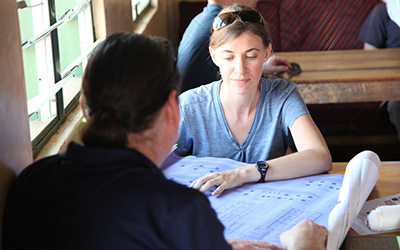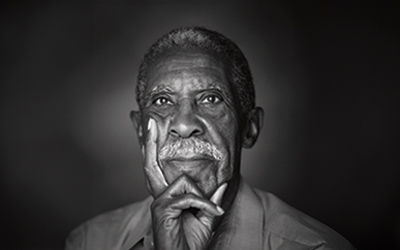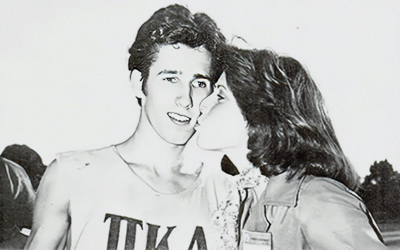International human rights are not just theoretical for Leila Rassekh-Milani ’89—they guide her global fight for justice and humanity
By Derek Herscovici ’14
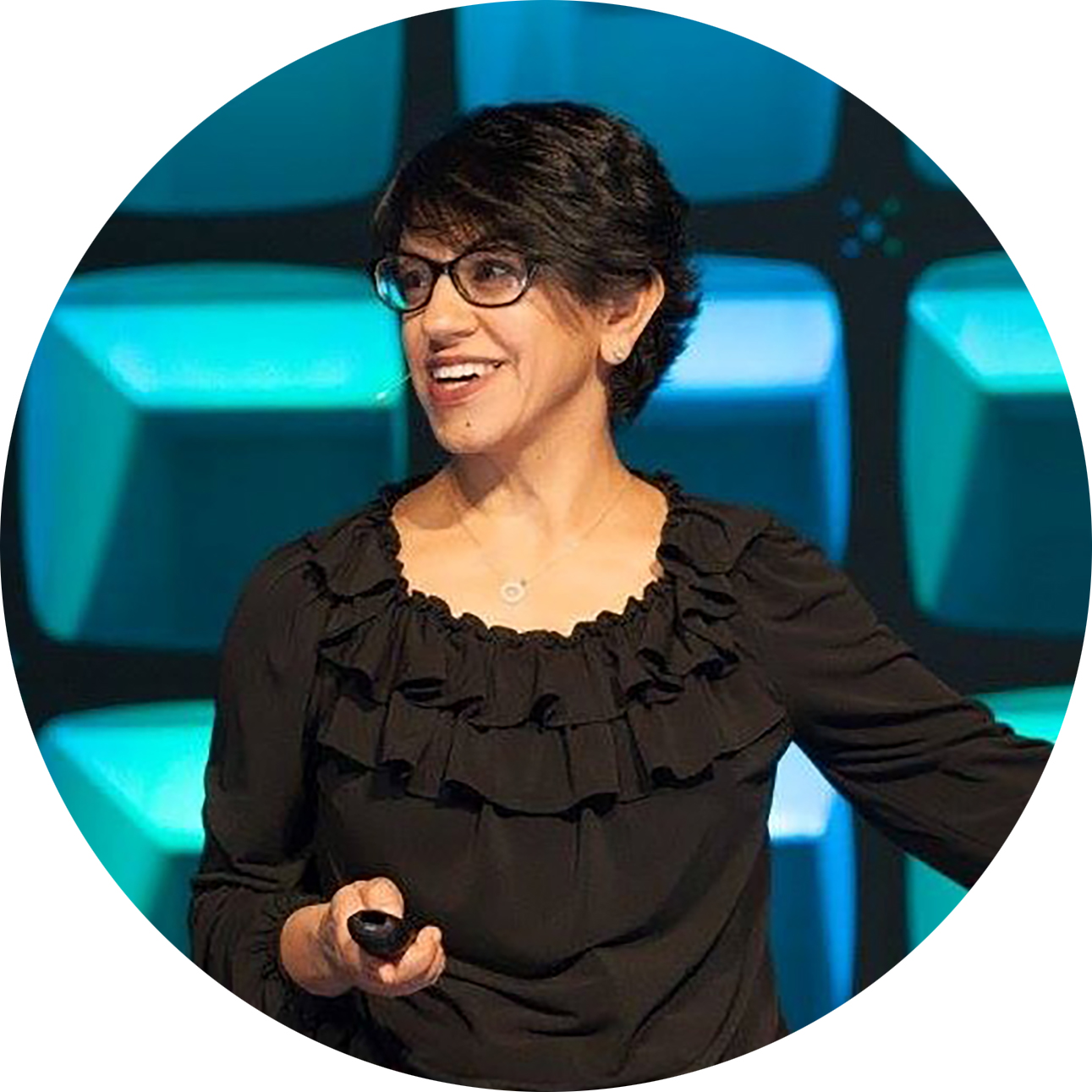
Sometimes, during one’s college experience, a single class can crystallize a student’s outlook so much, it alters the trajectory of their career. For Leila Rassekh-Milani, it was a senior-level constitutional law class she took at Auburn.
Now a senior international policy advocate for Futures Without Violence, an international organization committed to ending violence against women and children around the world, Milani was captivated by the legal recourses the U.S. Constitution provided against injustice—recourses that could have prevented her own family’s persecution.
Only a decade earlier, the Iranian immigrant and her family fled Tehran during the Revolution, persecuted by orthodox extremists for belonging to the Baha’i Faith. Milani’s father, once the vice president of Iranian Airlines, was forced out of his position. They immigrated to the U.S., eventually settling in Chattanooga, Tenn., but she never forgot that first taste of intolerance.
Watching the Baha’i and other religious minorities have their rights stripped away until even their religion was outlawed, Milani was driven to seek justice, even at an early age.
“I always knew that America was founded on the principles of equality, even though it didn’t always apply them in practice as it was meant to be,” said Milani from her home in Vienna, Va. “It was in my constitutional law course at Auburn that I learned about the importance of rule of law, and that a person could not be deprived of those rights without due process. We need the tools to create a more just society, and I frankly had never seen any document like the U.S. Constitution that created as close to an even playing field—it didn’t guarantee an even playing field and we must work to make sure these laws are applied fairly and equitably—but the laws I learned in school and in practice I [apply] in identifying ways to prevent violence in other countries related to gender-based violence.”
In December 2019, Milani traveled to Karachi, Pakistan as part of a collaborative exchange with the U.S. hosted by Right to Play Pakistan and other groups centered on girls’ and youth empowerment through sport. The group Women Win served as the lead exchange program with support from the U.S. Embassy in Pakistan, providing a window into the aspirations and struggles of some of the young women and girls in the region.
It’s not far off from what Milani envisioned her career would be while a student at Auburn.
Besides performing with the Auburn Dance Theater and supporting the swim team as a Tiger Splasher, Milani was president of the campus chapter of Amnesty International and even brought Civil Rights icon Rev. Ralph Abernathy for a speaking engagement. At the end of the event, she drove him back to his Atlanta home, listening to memories of his work with Martin Luther King, Jr. along the way.
“We didn’t have the technology or even the awareness like the youth today have, but one of the issues I was very passionate about at the time was ending apartheid [in South Africa],” said Milani. “That was one of the themes of [the Abernathy event], talking about the suffering of individuals under apartheid, why it was wrong, and why the U.S. needs to pull out of any investments at the time in South Africa and make a statement.”
Milani earned her law degree from Wake Forest University on a recommendation letter from Deborah Barrow—the professor who taught that constitutional law class.
While raising her family, she organized a community theater for children in Charlottesville, Va. that used the dramatic arts to address social issues. They performed a play she wrote, “Azadee,” about imprisoned women journalists in Iran at the March 2012 United Nations Commission for Status of Women.
One of the programs implemented by Futures Without Violence, Coaching Boys into Men (CBIM), taps into authority figures from the athletic world like coaches and trainers to impart guidance on positive masculinity, reducing violence and promoting healthy lifestyles. CBIM is currently used at various collegiate and professional programs in the U.S., and in early 2020 Milani was in South Africa and Tanzania helping to implement the program in eight African countries.
It’s just one of many steps she’s taking to not only change the actions, but the hearts and minds of people around the world.
“You can change all the laws you want. You can put in the best constitution, but if you don’t change and transform the hearts of people, those very same laws could get ignored.”
“You can change all the laws you want. You can put in the best constitution, but if you don’t change and transform the hearts of people, those very same laws could get ignored.”
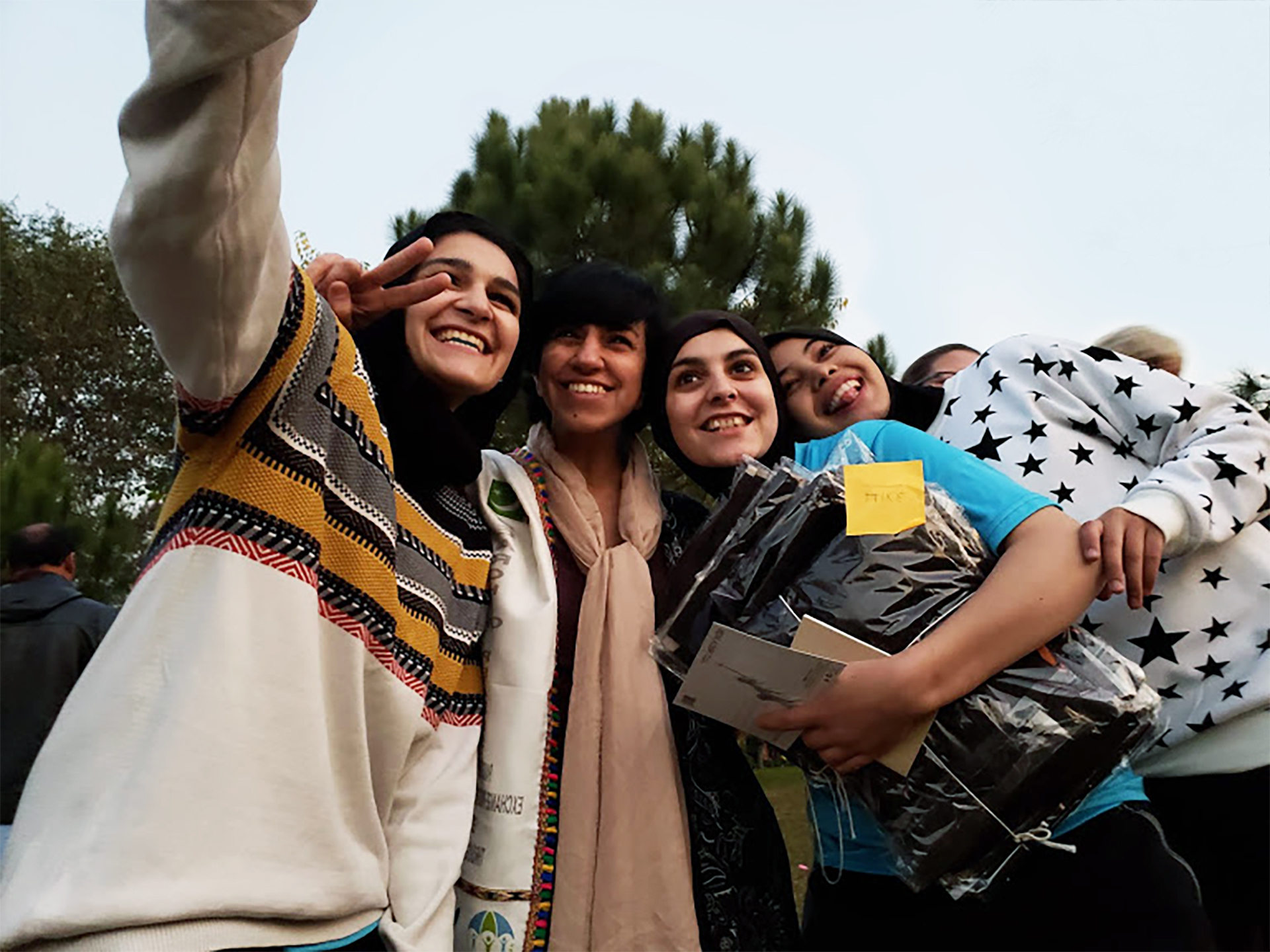
Building Hope: Disaster Relief Architecture & Design
Combining faith and design, disaster response architect Sarah Elizabeth Dunn ’03 builds shelters for disaster-stricken communities around the world.
Harold Franklin Reflects on Integration 50 Years Later
Fifty years ago, unsure of his safety, a tall, soft-spoken Black man walked alone across the Auburn campus to register for classes.
Auburn Love Stories: How They Met
From blind dates to football games to chance meetings in the classroom, Auburn alums reflect on how they found love and everlasting romance on the Plains.
Building Hope: Disaster Relief Architecture & Design
Combining faith and design, disaster response architect Sarah Elizabeth Dunn ’03 builds shelters for disaster-stricken communities around the world.
Harold Franklin Reflects on Integration 50 Years Later
Fifty years ago, unsure of his safety, a tall, soft-spoken Black man walked alone across the Auburn campus to register for classes.
Auburn Love Stories: How They Met
From blind dates to football games to chance meetings in the classroom, Auburn alums reflect on how they found love and everlasting romance on the Plains.
